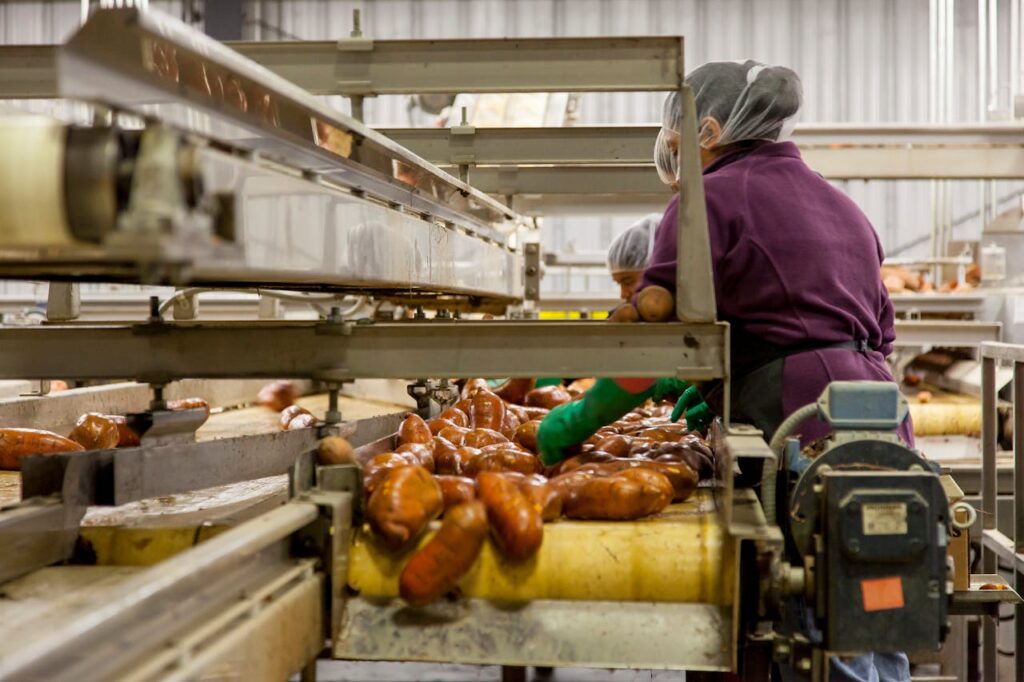Food Industry Careers: Useful Tips

The food industry is vast and diverse, encompassing roles in food production, manufacturing, distribution, and service.
Whether you’re interested in working in a restaurant, managing supply chains, or innovating in food technology, this sector offers numerous career opportunities.
This guide provides tips on securing a role in the dynamic food industry.
1. Explore Career Paths in the Food Industry
The food industry offers a variety of roles across multiple sectors:
- Food Production: Jobs in farming, food processing, and packaging.
- Culinary Arts: Opportunities as chefs, bakers, or kitchen staff in restaurants and hotels.
- Food Safety and Quality Control: Ensuring compliance with regulations and maintaining product quality.
- Food Science and Technology: Innovating in product development or enhancing food safety.
- Supply Chain and Logistics: Managing the distribution of food products to markets and retailers.
Identify which area aligns with your skills and interests.
2. Meet Educational and Training Requirements
Educational needs vary depending on the role:
- Entry-Level Positions: Many roles, such as those in restaurants or food production, require minimal formal education.
- Skilled Positions: Culinary arts may require training from culinary schools or apprenticeships.
- Technical Roles: Food scientists and safety inspectors often require degrees in food science, chemistry, or biology.
- Certifications: Industry certifications, such as ServSafe or HACCP (Hazard Analysis and Critical Control Points), are valuable for roles in food safety.
3. Develop Essential Skills
Employers in the food industry look for:
- Technical Skills: Knowledge of food preparation, safety standards, or logistics systems.
- Soft skills, including customer service, teamwork, and communication, are essential in many roles.
- Problem-Solving: The ability to handle unexpected challenges, such as supply chain disruptions or customer complaints.
4. Gain Practical Experience
Hands-on experience is key to building a career in the food industry:
- Internships: Many companies offer internships in food production, culinary arts, or research and development.
- Entry-Level Jobs: Roles such as line cook, food handler, or production assistant can provide a solid foundation.
- Volunteer Work: Assisting at food banks or community kitchens can also build experience and demonstrate your commitment to the industry.
5. Create a Tailored Resume and Cover Letter
Your application should highlight:
- Relevant skills and certifications.
- Experience in food-related roles, emphasizing customer service or technical expertise.
- Specific achievements include “Improved food safety compliance by 20%” or “Increased kitchen efficiency through workflow optimization.”
6. Network with Industry Professionals
Networking can help you uncover hidden opportunities:
- Professional Organizations: Consider joining groups.
- Industry Events: Attend food expos or culinary festivals to connect with employers and peers.
- Social Media: Use LinkedIn or Instagram to engage with industry professionals and showcase your work.
7. Leverage Job Boards and Platforms
Specialized job boards can help you find food industry roles:
- Good Food Jobs: Focused on sustainable and innovative food careers.
- Poached Jobs: A platform for culinary and hospitality professionals.
- Indeed and Glassdoor: Broad job platforms with filters for food industry roles.
8. Stay Updated on Industry Trends
The food industry evolves in response to changing consumer preferences and technological advancements. Stay informed by:
- Following News Outlets: Read publications like Food Business News or Restaurant Business.
- Exploring Trends: Learn about plant-based foods, sustainability, and food tech innovations.
- Understanding Regulations: Stay updated on guidelines.
9. Prepare for Job Interviews
Employers in the food industry often focus on:
- Technical Knowledge: Understanding food preparation, safety, or supply chain logistics.
- Behavioral Questions: Use STAR to demonstrate your problem-solving and teamwork abilities.
- Passion for the Industry: Share why you’re motivated to work in the food industry and how you can contribute.
10. Consider Geographic Preferences
Certain areas are hubs for the food industry:
- California: Known for agricultural production and innovative food companies.
- New York City: A hotspot for restaurants, catering, and food service roles.
- Midwest States: Home to large-scale food processing and manufacturing plants.
Conclusion
The food industry offers many opportunities for professionals with diverse skills and interests.
You can secure a rewarding role in this dynamic sector by identifying your career goals, gaining relevant experience, and staying informed about industry trends.
